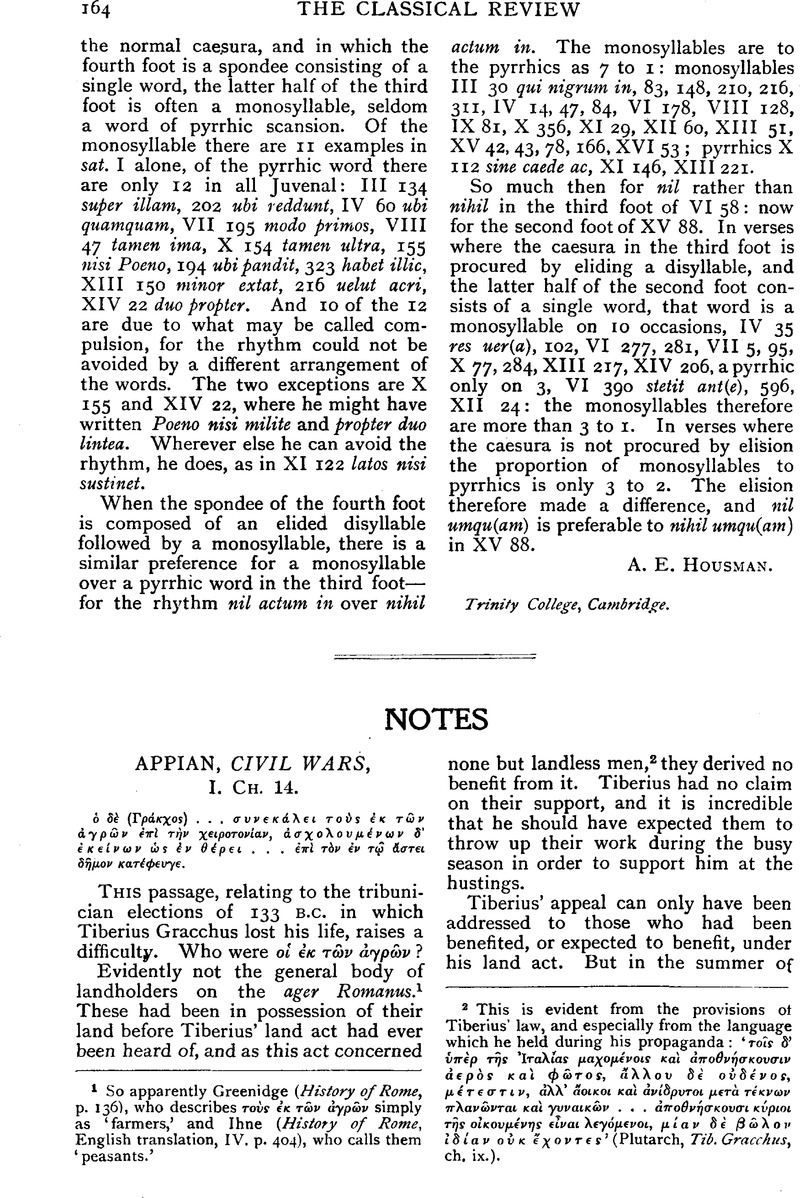No CrossRef data available.
Published online by Cambridge University Press: 27 October 2009

page 164 note 1 So apparently Greenidge (History of Rome, p. 136), who describes τούς ἐκ τῶν ἀγρῶν simply as ‘farmers,’ and Ihne (History of Rome, English translation, IV. p. 404), who calls them ‘peasants.’
page 164 note 2 This is evident from the provisions ot Tiberius' law, and especially from the language which he held during his propaganda:  (Plutarch, Tib. Gracchus, ch. ix.).
(Plutarch, Tib. Gracchus, ch. ix.).
page 165 note 1 Cato, De Re Rustica, chs. 144–5.
page 165 note 2 Ibid. ch. 146. Among these entrepreneurs may be reckoned the great-grandfather of the Emperor Vespasian, who used to conduct gangs of harvesters from the Umbrian mountains into the Sabie country (Suetonius, Vespasianus, 1. §4).
page 165 note 3 Ibid. ch. 147.
page 165 note 4 Varro, , De Re Rustica, I. 17. 23.Google Scholar
page 165 note 5 Cato 4, § 4, ch. 136. The politor received one-fifth to one ninth of the produce. On this basis of remuneration it cannot be supposed that the politor prepared and sowed the land. But the reaping and threshing of the corn would require a considerable expenditure of labour, for in ancient Italy this work was done with very inefficient instruments, such as handsickles and threshing-sledges.
page 165 note 6 Cao 1, § 3.
page 165 note 7 Xenophon, , Hellenica, II. 1. 1.Google Scholar; VI. 2. 37. These instances are drawn from Greek history, but are none the less applicable to the present case.
page 165 note 8 Diodorus (Bk. 34, fr. 6.) describes Tiberius' Supporters as ![]() . This would be an apt description of demobilised men who did net merely rely on state bounties, but went out in search of work.
. This would be an apt description of demobilised men who did net merely rely on state bounties, but went out in search of work.
page 168 note 1 The monosyllable in this type is occasionally an elided trochee in Catullus and Martial.